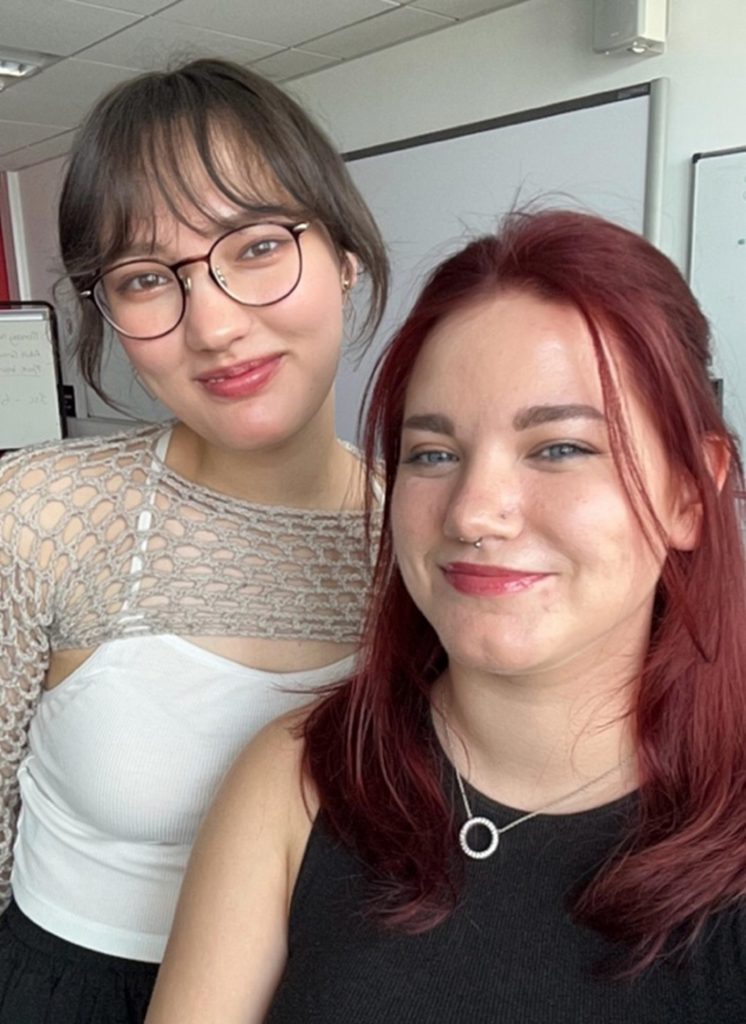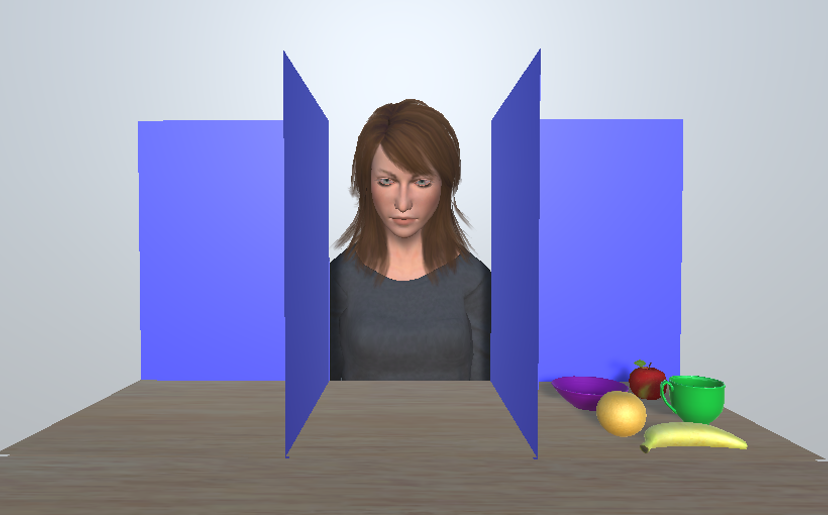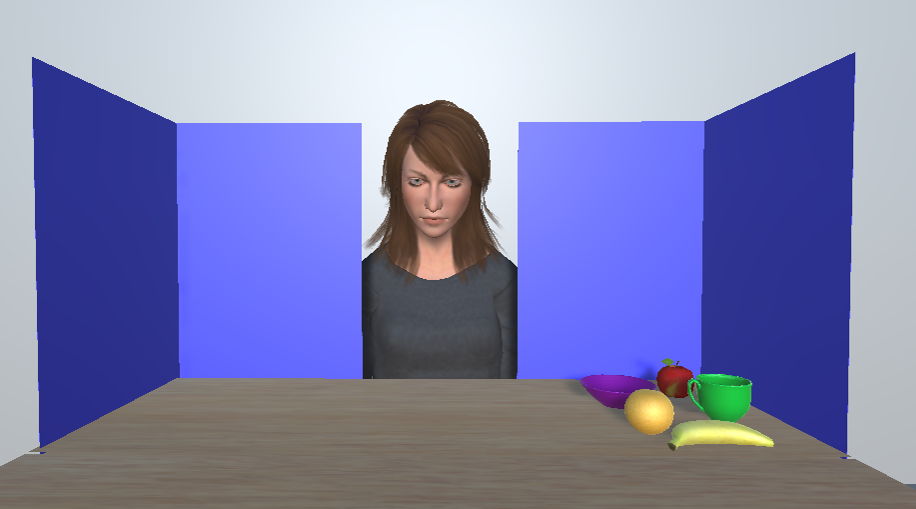Abby Pritchard and Lucy Calvert, spent July completing a paid internship with the Applied Cognition Group under the supervision of Dr Sam Gregory. Lucy and Abby have written the following piece describing their experience of the internship.
For the month of July in 2025, we (Lucy and Abby) had the opportunity to complete an internship under the supervision of Dr. Samantha Gregory whereby we had gained first-hand experience conducting the experiment that Sam had created: recruiting participants, analysing data, and learning how to use psychological lab equipment. Furthermore, we both had weekly check-in meetings with Sam to discuss our progress and any queries we had regarding the internship or our educational studies, namely ideas we might have had for our third-year dissertation.



Sam had designed this study to investigate the effects of social cognition on working memory through the use of virtual reality (VR: See image showing the study conditions). The first three weeks of the internship consisted of us putting up posters around campus and emailing prospective participants who had expressed interest in the study. In total, we managed to gather 21 participants within the first three weeks of the internship and carried out the experiments independently in a lab-based setting. In the last week of the internship, we organized the data, ensured that it was ready to be analysed.
Alongside completing research for Sam’s experiment, we also had the opportunity to attend an event in Media City which explored social isolation and frailty within the older population, lead by Keri Furniss and Sam. This was attended by healthcare professionals, practitioners, charities, and some members of the community. During the event, two Professional Doctorate students each gave a presentation delving into the findings of their research into social isolation and frailty, and then two healthcare professionals presented their findings of frailty from a hospital setting. Following this, there were some breakout sessions where all attendees discussed the findings and further developed ideas for the future. At the end of the event, we both summarised and analysed the feedback forms and the rich ideas from the discussion boards.
Additionally, we were asked to help a PhD candidate, Anna Baatz code eye-tracking data. Anna was working with Canal River Trust and was examining if people’s eye-gaze tends to be more focused on the natural or man-made aspects when walking by canals. To do this, we learnt how to use a software ‘Tobii’ to complete a top-down analysis approach. We drew an outline of all the objects we coded for and readjusted this for every frame of the footage; this was a lengthy process and consisted of eleven pre-determined codes.
Another task we had completed during the internship was giving Nabil feedback on a study he was piloting, whereby most of the suggestions we had made were implemented in order to ensure the study was more palatable for the general public. We have also participated in multiple other students’ studies, supporting their data collection and actively learnt from peers.
Abby’s personal reflection:
One of the most significant growths I experienced during this internship was overcoming the intimidation and fear I initially had towards conducting research independently and using unfamiliar equipment. Despite the campus being quiet for summer break, we were able to successfully recruit the target number of participants and conduct the VR-based task that I had never used before. Being able to set up the VR equipment, clearly explain the instructions, and smoothly carry out the data collection process gave me a strong sense of achievement, boosting my confidence. Using unfamiliar tools like VR and Tobii also gave me a clearer and grounded understanding of both the challenges and joys of research. In addition, being introduced to the psychology labs and some equipment by the technicians, Sam and Roisin, helped me realise that topics I had previously only been vaguely interested in could actually be explored through real, hands-on research. This experience expanded my sense of what was possible.
I am especially grateful for the valuable encounters and connections I made with some other students, the technicians, and the staff and academics at the Cog group meeting. It was very inspiring to engage with such an experienced and knowledgeable team, which helped me learn so much more than I expected. As someone who tends to hesitate unless I feel completely prepared, this internship encouraged me to take a more proactive mindset. Lastly, I would like to express my sincere thanks to my supervisor Sam, who guided me whenever I felt unsure, offering advice and support that helped me stay motivated throughout the internship.
Lucy’s personal reflection:
I am grateful to have received this opportunity to participate in the summer internship, I believe it has given me invaluable insight into psychological research through the first-hand experience of collecting and analysing data myself. Additionally, I enjoyed having a more hands-on role in analysing data and being able to use different lab equipment and software than I am normally used to during my undergraduate degree. I had also particularly enjoyed attending the frailty event in Media City as it gave me more insight into a topic I did not know much about and enjoyed hearing people present their research. Furthermore, this internship has piqued my interest in psychological research and has encouraged me to endeavor further study for a psychology-related master’s degree.

